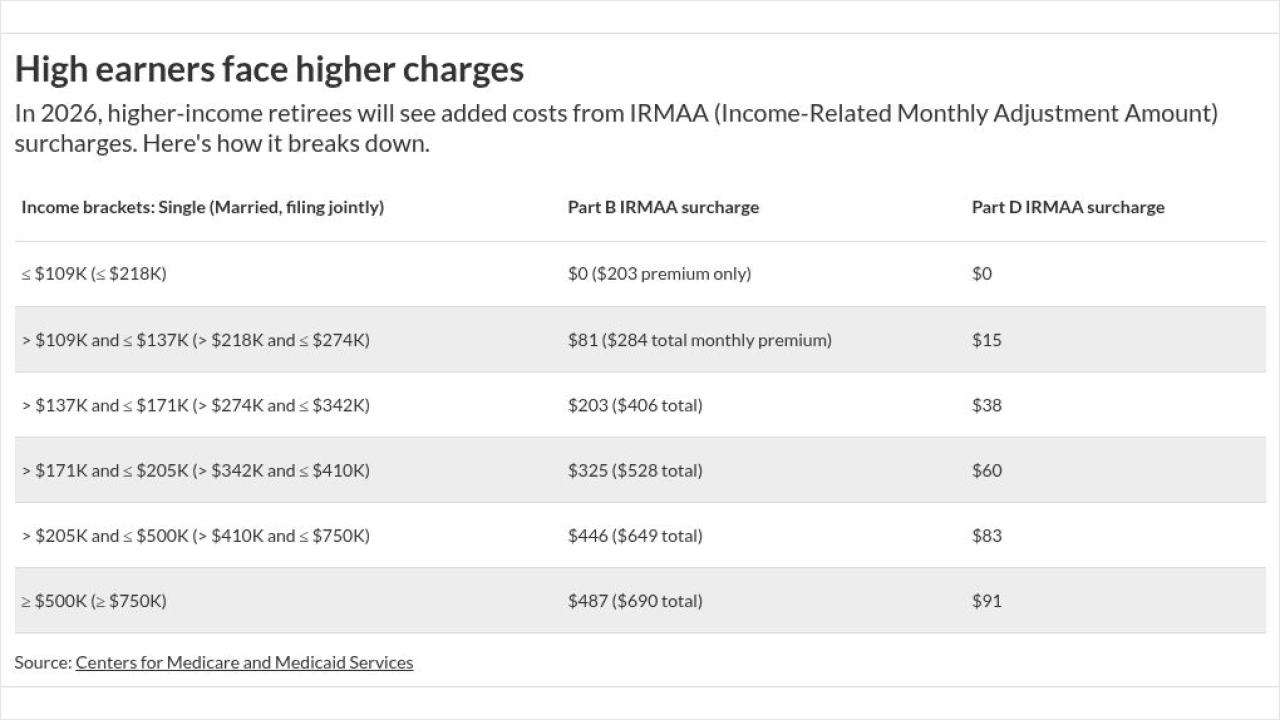Variable annuities can be tricky.
Regulators have long warned advisers to be careful when recommending or selling products in that investment class, and now they've tagged an industry heavyweight with a record fine for misleading investors and steering them into high-fee annuities that didn't deliver the benefits they promised.

On Tuesday, FINRA announced a $25 million sanction against MetLife Securities stemming from what it described as a systematic failure to accurately represent the features of different variable annuities to clients and to vet the replacement applications submitted by registered representatives.
It was the largest fine FINRA has levied against a firm for misconduct involving variable annuities, and the second-largest the industry regulator has imposed on a company in any matter, a FINRA spokeswoman said.
Of the MetLife penalty, FINRA assessed $20 million as a fine and ordered the insurance giant to pay out $5 million to clients "for making negligent material misrepresentations and omissions" on tens of thousands of variable annuity replacement applications.
For FINRA, the case highlights the supervision challenges that variable annuities can pose for firms, which sometimes struggle to ensure that registered reps are accurately representing the benefits and fees associated with those products to their clients.
"Variable annuities are complex and expensive products that are routinely pitched to vulnerable investors as a key component of their retirement planning," Brad Bennett, FINRA's chief of enforcement, said in a statement. "Firms engaging in this business must ensure that the information on the costs and benefits of these products provided to customers is accurate and that their registered representatives are sufficiently trained to understand and explain the risks and complex features of what they are selling."

From 2009 to 2014, MetLife "misrepresented or omitted at least one material fact" in its applications for replacing a client's variable annuity in nearly three-quarters of the replacement applications that the firm approved, according to FINRA, which says it reviewed a random sample of the 35,500 such transactions executed during that period.
In that time, MetLife Securities garnered at least $152 million in gross commissions from variable annuity replacements, FINRA reported. But in steering clients from one annuity to another, MetLife representatives allegedly misrepresented the costs of the products -- clients believed that the replacement annuity would be cheaper than their current holding, when, in fact, the opposite was true -- and failed to inform clients that they would lose important benefits like guaranteed income with the replacement annuity.
FINRA also said the approval process was something of a rubber-stamp operation, with MetLife principals signing off on 99.8% of the variable annuity replacement applications they reviewed, despite the pervasiveness of material errors.
"MetLife fully cooperated with the FINRA investigation and we are pleased to put this matter behind us,” a company spokesman said.
The spokesman declined to comment on any specific changes the firm has made involving the sale of variable annuities, but instead referred to the passage in the
MetLife settled the case without admitting or denying any wrongdoing.





